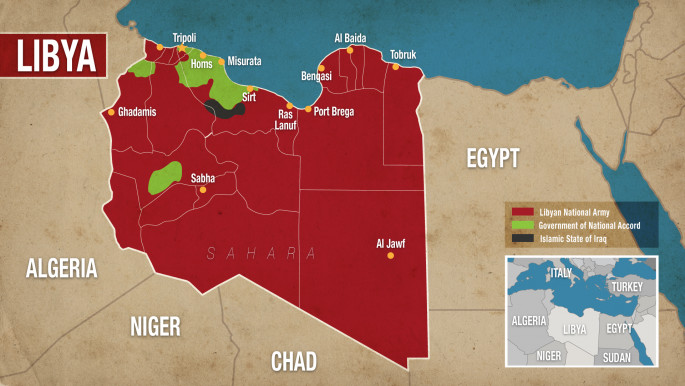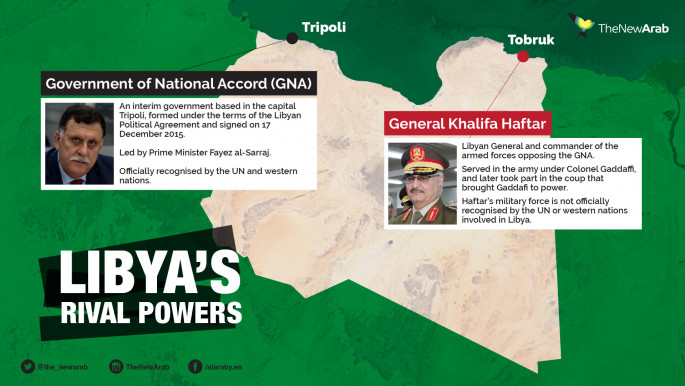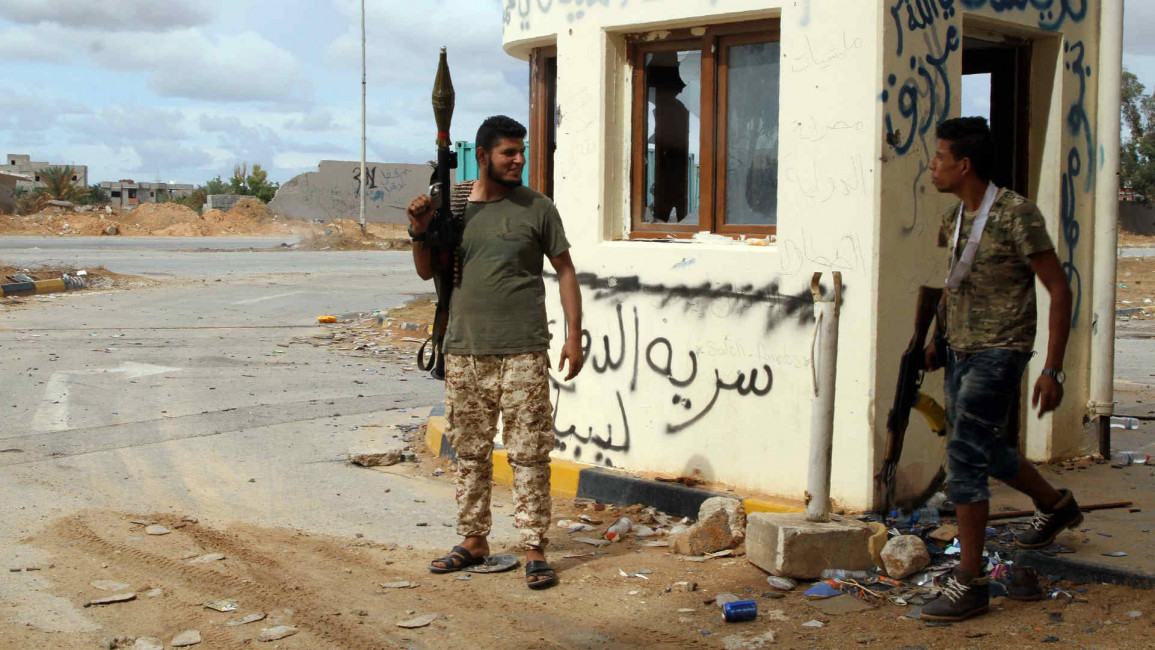Libya air raid on biscuit factory kills seven including foreign workers
At least seven civilians were killed, most of them foreign workers, and 30 were injured in an air strike on Monday that hit a biscuit factory in southern Tripoli, Libya's health ministry said.
Ministry spokesman Amin al-Hachemi told AFP that two Libyans and nationals from Bangladesh, Egypt and Niger died when the factory in Wadi Rabi, a suburb at the centre of fighting for control of the capital, took a direct hit.
Fierce fighting has gripped Tripoli since rogue general Khalifa Haftar launched an offensive to take the capital in April, but met fierce resistance from forces loyal to the Tripoli-based Government of National Accord.
The US on Friday urged Haftar to end his bid to seize Tripoli and accused Russia of exploiting the conflict.
The US made its most explicit call against the self-styled Libyan National Army (LNA) of Haftar, who was earlier praised by President Donald Trump, after a delegation from Libya's fledgling unity government held talks in Washington on Thursday.
"The United States calls on the 'Libyan National Army' to end its offensive on Tripoli," a joint statement said.
 |
"This will facilitate further US-Libya cooperation to prevent undue foreign interference, reinforce legitimate state authority and address the issues underlying the conflict."
The US also "underscored support for Libya's sovereignty and territorial integrity in the face of Russia's attempts to exploit the conflict against the will of the Libyan people", it said.
Western powers have sent mixed signals with France and Italy welcoming Haftar for visits and Trump after a phone call hailing his role in "fighting terrorism and securing Libya's oil resources."
Just hours after Amnesty International accused both sides of "utter disregard" for the laws of war in an October report citing possible war crimes, two children were killed by a rocket on their home in Tripoli.
The UN-recognised GNA blamed the strike on the forces of east Libyan strongman Khalifa Haftar.
"Warring parties... have killed and maimed scores of civilians by launching indiscriminate attacks and using a range of inaccurate explosive weapons in populated urban areas," Amnesty International said.
"Both sides have shown utter disregard for the fundamental principles of international humanitarian law (the laws of war), which forbid such attacks," the report added.
Fighting has caused at least 1,093 deaths and 5,752 injuries, among them dozens of civilians. More than 128,000 people have fled their homes, the United Nations reported in July.
Amnesty said it had investigated on both sides of the frontline, finding "a systematic disregard for international law, fuelled by the continued supply of weapons to both sides in violation of a UN arms embargo."
Arms exports to Libya have been banned since the 2011 revolt to overthrow dictator Muammar Gaddafi.
 |
"Scores of civilians have been killed and injured as both sides use everything from Qaddafi-era unguided rockets to modern drone-launched guided missiles in attacks that could amount to war crimes," said Amnesty researcher Brian Castner.
Amnesty said it had visited 33 attacked sites around Tripoli, including an airport, schools and field hospitals, finding evidence of possible war crimes by both sides.
The most lethal attack documented was a missile strike in July on a field hospital that killed five medics and rescuers as well as injured eight others.
Amnesty established that the missile was fired from a Chinese Wing Loong drone which the United Arab Emirates operates for pro-Haftar forces.
Comment: It's time for the ICC to indict Haftar for war crimes
"The international community must uphold the UN arms embargo, which Turkey, the UAE, Jordan and other countries have flagrantly violated," Castner said.
Haftar, the head of the self-styled Libyan National Army, receives support from Egypt, the UAE, and Saudi Arabia in his fight against the internationally-recognised Libyan government based in Tripoli.
Russia has also signalled its support for the warlord but has not formally intervened in the Libyan war.
Follow us on Twitter and Instagram to stay connected


